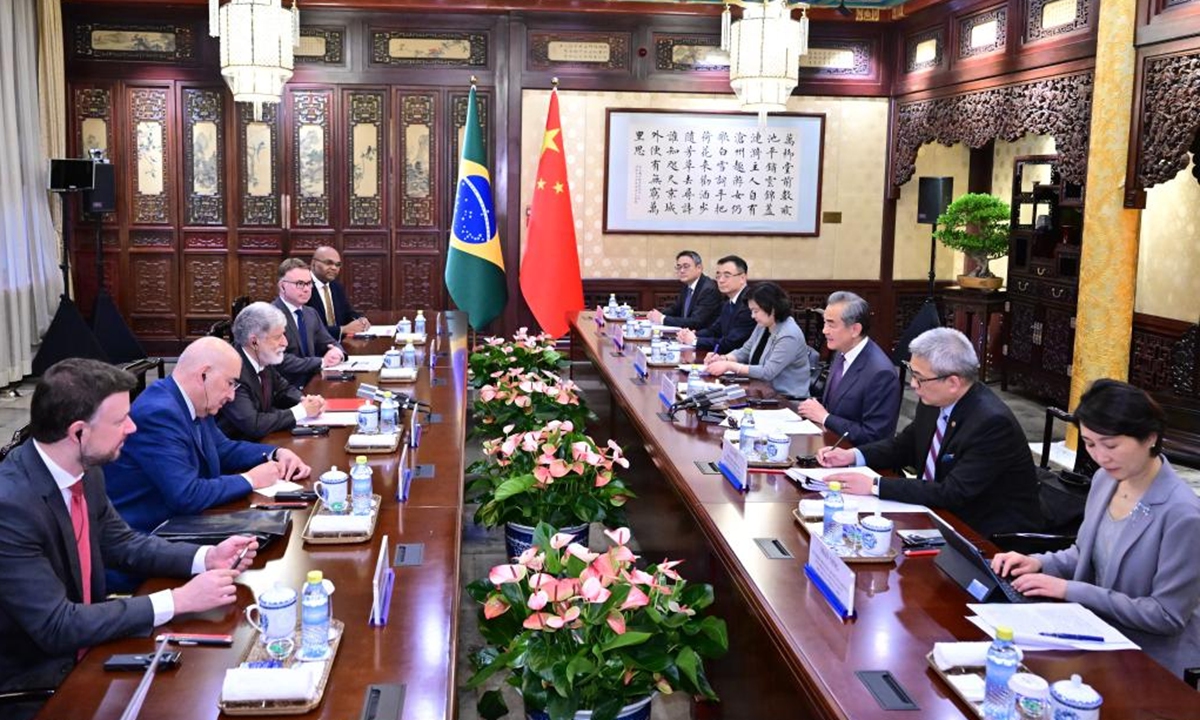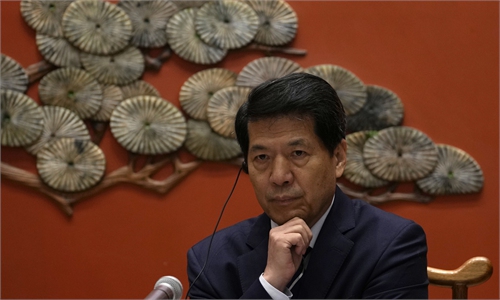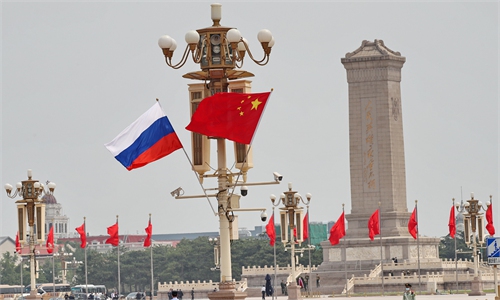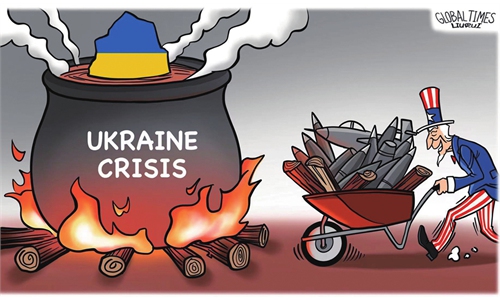
Wang Yi, a member of the Political Bureau of the Communist Party of China (CPC) Central Committee and director of the Office of the Foreign Affairs Commission of the CPC Central Committee, holds talks with Celso Amorim, chief advisor to the President of Brazil, in Beijing, capital of China, May 23, 2024. Photo: Xinhua
China and Brazil have jointly urged the political settlement of the Ukraine crisis and peace talks to be held with the participation of both Russia and Ukraine, which shows the view of developing countries and provides a workable approach to solving the crisis amid new US weapons aid and the Western-convened "peace conference" in Switzerland, analysts said Friday.
Wang Yi, a member of the Political Bureau of the Communist Party of China (CPC) Central Committee and director of the Office of the Foreign Affairs Commission of the CPC Central Committee, had an in-depth exchange of views on pushing for the political settlement of the crisis with visiting Celso Amorim, Chief Advisor to the President of Brazil, in Beijing on Thursday.
China and Brazil jointly issued a six-point consensus on their common understanding of the political settlement of the Ukraine crisis on Thursday, calling on all relevant parties to observe three principles for de-escalating the situation - no expansion of the battlefield, no escalation of fighting and no provocation by any party - and stating that "dialogue and negotiation are the only viable way out of the crisis."
China and Brazil support an international peace conference held at a proper time that is recognized by both Russia and Ukraine, with equal participation of all parties as well as fair discussion of all peace plans, Xinhua News Agency reported Thursday.
The two sides also agreed that efforts are needed to increase humanitarian assistance to relevant regions and prevent a larger scale humanitarian crisis; the use of weapons of mass destruction, particularly nuclear weapons and chemical and biological weapons must be opposed; attacks on nuclear power plants and other peaceful nuclear facilities must be opposed; and dividing the world into isolated political or economic groups should be opposed.
Wang Wenbin, a spokesperson for China's Foreign Ministry, said at Friday's routine press briefing that the Ukraine crisis has entered its third year, with spillover effects and high risk of escalation. The international community believes the most urgent task is to de-escalate the situation and create conditions for cease-fire.
The consensus is proposed by China and Brazil, but we welcome members of the international community to support and endorse the above-mentioned common understandings, and jointly play a constructive role in de-escalating the situation and promoting peace talks, Wang Wenbin said.
Li Haidong, a professor at the China Foreign Affairs University, told the Global Times on Friday that the consensus can be seen as a representative of the Global South, or developing countries' road map for a way out of the prolonged conflict.
Despite calls for peace and de-escalation, the US "is expected to announce an additional $275 million in military aid for Ukraine on Friday," the Associated Press reported. On Monday, US Defense Secretary Lloyd Austin committed to keeping US weapons moving to Ukraine.
Chinese analysts noted that the sweeping Western sanctions against Russia and the continuous sending of weapons to Ukraine failed to defeat Russia or end the conflict, which demonstrated the US approach does not work.
As for the "common understandings" issued by China and Brazil, it is not a one-sided condemnation of any country, but a constructive call to de-escalate the situation and seek a feasible solution to it, Li said, adding that the consensus also touched on how to establish a more balanced and sustainable security framework for Europe - equal participation and fair discussions.
A peace conference will be held in Switzerland in mid-June. US President Joe Biden will reportedly miss the conference because it conflicts with a campaign fundraiser in California he's set to attend, Bloomberg reported Thursday.
Russian President Vladimir Putin on May 17 denounced the upcoming Ukraine peace conference as a means of putting pressure on Russia. Putin criticized the fact that Russia was constantly being reproached for not attending, when the country was not even invited to the meeting.
Some Western media outlets are also not optimistic about the conference.
China has not confirmed whether it will participate, but Li said that he fears the upcoming peace conference will be a stage for taking sides, and if so, it will not yield any meaningful result but could even risk further escalating tensions.
Meanwhile, China and Brazil, two major countries of the Global South, are coordinating to promote a Global South view on the issue and advocate for a more balanced and fairer global order, Li said.
It is heartening to see that the "Global South" countries represented by China and Brazil have achieved a collective rise and promoted a more balanced and reasonable structure of world power, Wang Wenbin said.



